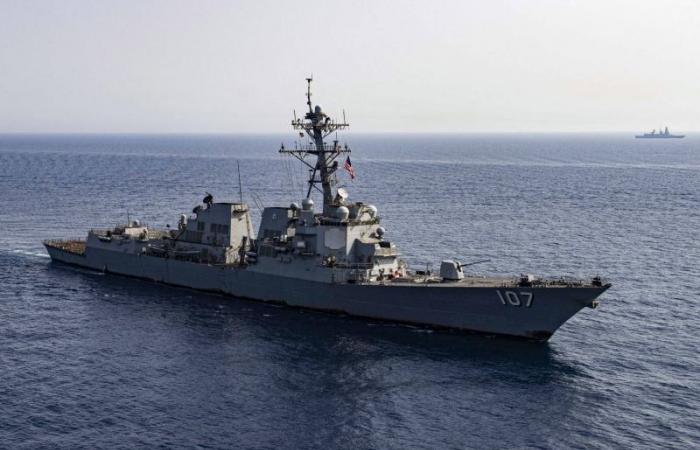US intelligence has estimated that the risk of a large-scale Israeli offensive in Lebanon could strengthen the alliance between Russia and the pro-Iranian “axis of resistance” in the region, including military cooperation between Tehran and Moscow, according to information from the Middle East Eye (MEE) website.
On June 29, Iran warned Israel that all members of the “axis of resistance” could mobilize if Hezbollah faced a large-scale Israeli offensive in Lebanon. The Iranian mission to the UN in New York later indicated, in a message posted on X the same day, that the country considered “the propaganda of the Zionist regime regarding its intention to attack Lebanon” as part of “psychological warfare” and warned Tel Aviv that “all members of the axis of resistance,” which includes Iran and its regional allies, could mobilize if it launched a “large-scale” offensive against Hezbollah in Lebanon.
Read also
Reassuring messages reach Lebanon: war is not for tomorrow
Israeli Defense Minister Yoav Gallant said on June 27, after a visit to Washington, that Israel did not want to enter into armed conflict with Hezbollah on Lebanese territory, but that if that were to happen, the Israeli army had “the capacity to take Lebanon back to the Stone Age.”
Military relations between Iran and Russia
William Usher, a senior CIA official specializing in the Middle East, told Middle East Eye that “If Israel attacks inside Lebanon, it would likely lead to a strengthening of military relations between Iran and Russia to help Hezbollah defend itself.”
Patrick Theros, a former US ambassador to Qatar, told MEE that if the US supports an Israeli attack on Hezbollah, as it has signalled, it could lead to Russian intervention. Mr Theros also said that if Israel attacks Hezbollah, it would be a mistake, and that if the US supports the attack, Russia would intervene. He also reiterated that the Russians could clandestinely supply the Yemeni Houthi rebels through the Iranians or provide more intelligence. This support for the “resistance” could include sending anti-ship missiles to the Houthis, which Russian President Vladimir Putin has been considering, MEE continued.
For Fabian Hinz, a ballistics expert at the International Institute for Strategic Studies contacted by MEE, the supply and demand between Russia and the Houthis “match”. The Houthis, who have been attacking merchant ships in the Red Sea since November 2023 in support of Gaza, generally use drones and ballistic missiles to attack international ships. Their missile arsenal so far includes Iranian-made models and Russia could supply them, according to Mr Hinz, with the “KH-31” supersonic anti-ship missile. In this context, a meeting took place in January in the Kremlin between Russian Deputy Foreign Minister Mikhail Bogdanov and a Houthi delegation.
Russia is allied with Iran, an enemy of the United States since the advent of the Islamic Republic in 1979. It is also close to Hezbollah, with whom it fights in Syria alongside the regime of President Bashar al-Assad. According to an article in the Wall Street Journal dated November 2023Russian paramilitary mercenaries from Wagner were planning to supply air defense systems to Hezbollah.
For memory
Wagner Group May Supply Hezbollah with Air Defense Weapons, WSJ Says
This Russian support for the Houthis is also seen by a retired CentCom commander, General Frank McKenzie, interviewed by MEE, as “revenge” against US interests in the Red Sea, in the face of what Moscow perceives as US responsibility for Ukrainian attacks on Russian ships in the Black Sea.
According to some experts, Russia sees the war in the Middle East as an opportunity to impose further challenges on the US government of Joe Biden because of its support for Ukraine. Russia is also counting on the hydrocarbon-rich Gulf states to demonstrate that it is not isolated on the international stage, notably with a strong Russian-Saudi alliance and support for Saudi Arabia’s entry into the BRICS. The Russian-Saudi alliance is intensifying with the OPEC+ energy partnership. However, ties between Russia and Iran are among the points of friction between Riyadh and Moscow.
US intelligence has estimated that the risk of a large-scale Israeli offensive in Lebanon could strengthen the alliance between Russia and the pro-Iranian “axis of resistance” in the region, including military cooperation between Tehran and Moscow, according to information from the Middle East Eye (MEE) website. On June 29, Iran warned…
- -





